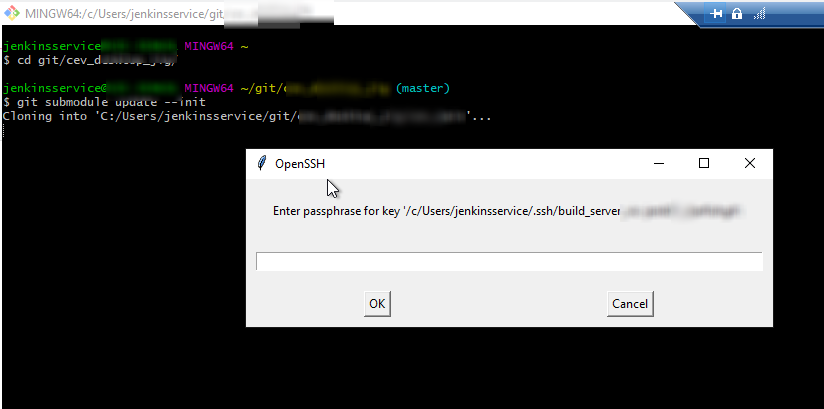On a private repository from gitlab, when I run git clone [email protected]:group/project-submodule.git the clone completes successfully.
As part of the cloning process, I'm asked for the passphrase of my private key.
When I run
submodule update --init "group/project-submodule"
It fails with:
Permission denied, please try again. Permission denied, please try again. Permission denied (publickey,gssapi-keyex,gssapi-with-mic,password). fatal: Could not read from remote repository.
While trying to process the submodule getting, I'm not asked for the passphrase for my private key.
(I had to anonymize it)
fatal: clone of '[email protected]:group/project-submodule.git' into submodule path 'C:/Users/user/repos/project-module/project-submodule' failed
I've checked the .gitmodules file and it contains the right data (I think it can be confirmed by the error message).
The main element that calls my attention is that I'm not asked for my private key passphrase. Even weirder because, when I use git clone directly, it runs as expected.
I also already diagnosed by accessing with ssh and it asks me for the passphrase just like it happens when I execute a pull or a clone
Using git for windows "git version 2.16.2.windows.1"

